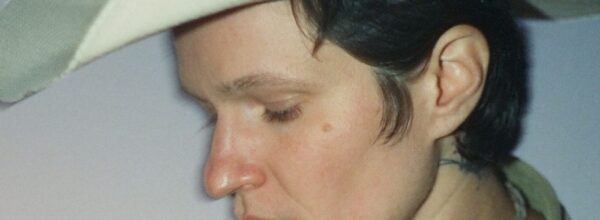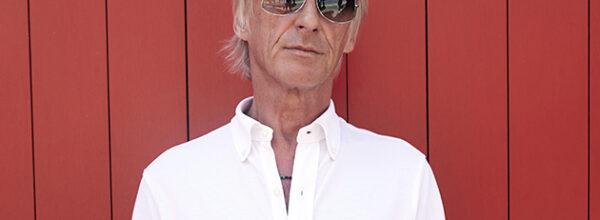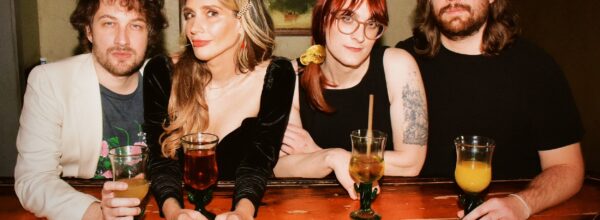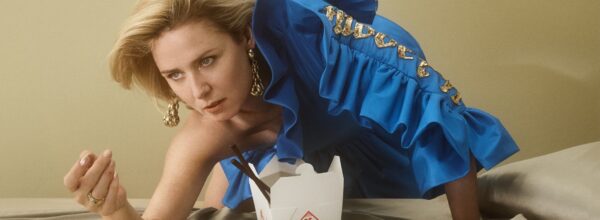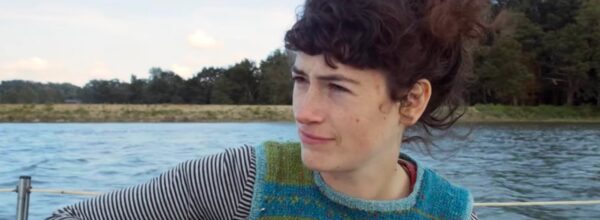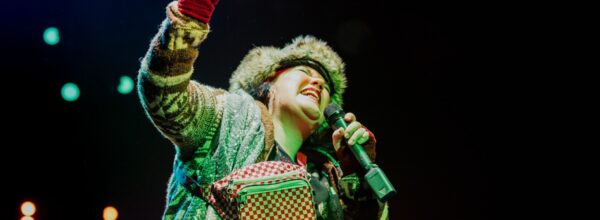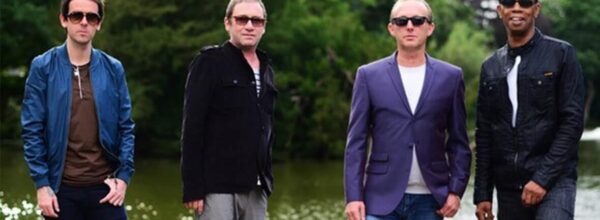10th January 2016
After his latest album Something More Than Free built on the promise of 2013’s excellent Southeastern by scoring a number six spot in the Billboard 200 chart last summer, Alabama’s Jason Isbell has emerged as what Rolling Stone magazine have dubbed “arguably the most revered roots-rock singer-songwriter of his generation”.
Ahead of his show at O2 Bristol Academy on 20th January, we had a twenty minute chat with Jason about his approach to songwriting, the damaging myth of the tortured artist and his apprenticeship at FAME studios, Muscle Shoals.
Something More Than Free, which was released last summer, is your most successful album to date having got to number six on the Billboard 200 chart. Has scoring your first mainstream top 10 album made any discernible differences to your life and career over the last 6 months?
Yeah, I think we have larger audiences now and that’s always a good thing. You know, that’s part of the goal. Other than that, not really. But you know, that’s enough; that’s guaranteeing us more longevity I think and better rooms to play and better travelling – so it’s a good thing.
I wanted to ask you a few questions about songwriting. I’m always interested in the creative process followed by different songwriters – is there a typical pattern for how you approach the writing a song or would you say that inspiration tends to arrive in various forms?
I would say that inspiration is bullshit. I don’t think that has anything to do with my job. I mean, do you need inspiration to go to work every day? I don’t look at it that way, I think that if your job’s to write songs, you write songs and how ever that needs to happen is how it happens. I could be singing into my phone and writing at a desk or actually sitting down at home when I have my own comfortable environment to write in but it’s all different kinds of ways all the time. The only thing that really each song has in common is the fact that I’ve reached the point of completion from paying attention to what’s going on around me; that’s really all that the songs have in common, I think. If you’re going to be a songwriter you have to pay a whole lot of attention to the world around you.
So, in terms of breaking down the start of that process, you wouldn’t always start with a melody or always write on guitar? It’s just various, various things it can be?
No, people ask me that question but that question doesn’t make a lot of sense to me, honestly. If you’re working on a car, you fix what’s broken. Sometimes it’s a question of solving puzzles, you know, sometimes it’s a fully formed song that comes out all at once [but] that rarely happens. But to sit down and come out with a melody first or a lyric first…I think that’s a question that anybody who’s written a song will be kind of confused by because they just come out how they want to come out. You know, it can be a phrase, something that sticks in my head or something that I overhear or read; and I take a lot of notes and I back through them. If I’m actually sitting down with the intention of writing a song, I’ll go through my notes and try to find something that stands out but those notes might be musical or lyrical.
I watched an interview with you recently where you talk about writing the song ‘Cover Me Up’ where apparently you and your then girlfriend (now your wife of course, the musician Amanda Shires) each decided to write a song at opposite ends of the house and then reconvene five or six hours later to instantly present the songs to each other. I think you kind of said that you found this approach a little nerve-wracking – I was just wondering if you’ve decided to write in such a way since?
Well, you know, we were doing that a lot in those days; she was working on an album and I was too. We’d just recently moved in together, you know, and we had to figure out a way to separate in our *[unintelligible] so we kind of did that a lot. That was probably my most successful song from that period. I mean, we do happen to do that regularly around the house…(Jason becomes muffled)
Yeah, it’s a really nice song, it’s a really beautiful song ‘Cover Me Up’
Oh, thank you.
So your songs seem to oscillate between personal accounts of your own life and narrative vignettes whereby you tell stories from the perspective of different characters – ‘Hudson Commodore’ for example is from the perspective of a strong matriarch while ‘Yvette’ talks about sexual abuse from the point of view of a would-be teenage avenger. When you employ this device of using characters in songs, to what extent would you say that they were proxies to reflect your real experiences?
Well you know, I’m in all of the songs whether I mean to be or not. I think really the best way to write successfully, even if you’re writing narrative fiction, is to insert yourself and characters that are close to you into the narrative, or at least certain aspects of yourself. I don’t ever really write a song that’s completely about me or completely about one person, unless it’s something like ‘Cover Me Up’ where I have a very specific purpose for writing the song. Yeah, that’s one of the things I really like about songwriting, you don’t really have to delineate; if you go in a bookstore or when they used to have video stores, I guess those don’t really exist anymore, you would see Documentary or Biography or Autobiography shelved differently from the fiction but that’s not the way it is with a record store. Really it doesn’t matter how much truth there is, it’s all true even if it didn’t happen.
Did I read that ‘Yvette’ came about as you actually…as you sort of got into your thirties and started meeting and getting to know more people that a lot of people have gone through those experiences. Is that what ‘Yvette’ was about?
Yeah, you know I didn’t realise…when I was a kid I had really good parents and I was close to my family and none of that kind of stuff every happened to me so I sort of assumed that it didn’t happen to many people; but as I got older I realised that it happens to a lot of folks.
Yeah, that’s really sad isn’t it?
Yeah, it is – it’s a tragedy.
I’m sure you’re aware of the Springsteen comparisons when it comes to talking about blue collar workers – so you might talk about truck loaders, railway workers and house wives etc. Is this a pure expression of simply writing about what you know, the people who you know or is there a romance to working life that you find useful for subject matter?
I don’t know if there’s a romance to it but it is something that I grew up around; the kind of people that I’ve spent most of my life around and my family are all working class folks. Well, also I think those people need more of a voice and they’re very oftenunder represented really everywhere, not just in America but everywhere. So I think it’s part of the responsibility of a songwriter to represent people who might be under represented.
Yeah sure, it’s much better than talking about ‘bling’ isn’t it?
It is. You know, really in all honesty that’s the same thing though, that’s the same thing. When people are rapping about material things, the reason they’re doing that is the same reason why I’m writing songs about working class people; you know, to throw something in the face of people who have held power over your head for a long time. I see that as the same thing, at least when it’s done intelligently.
So sort of like both ends of the same coin kind of thing, you think?
It is, yeah, I think so. I think it’s just hip-hop culture deals with it in a different way than country music deals with it, you know when it’s done right. There are some country singers who attempt to go that route but not the kind of stuff that I listen to.
I’ve recently been listening to the lyrics of ‘Live Oak’ and they’ve kind of intrigued me. It seems to be a song that features a schizophrenic narrator who ends up murdering his lover. Can you tell me more about what your inspiration for that song was?
Um, that’s kind of a broad question. It’s allegorical that song so I’m not only writing a story about somebody who winds up becoming a murderer, I’m also writing a song about the changes that I was going through at that point in time. I think a lot of my favourite songs, they work that way on multiple levels.
So that might lead to my next question actually. I guess you alluded to the time before (2013 album) Southeastern and I hope you don’t mind me talking about this in terms of addiction and rehab and things like that?
Oh no, I don’t mind at all.
Okay cool. Yeah, I was really interested on your point of view on this – I recently watched an interview with Jeff Tweedy from Wilco where he suggests that the idea of the tortured artist is a damaging myth. He goes on to say that great art shouldn’t be considered as a product of pain but rather something that is created in spite of it. As a songwriter who has been through addiction, rehab and now a sober, happy life of marriage and fatherhood, would you subscribe to that view point?
Yeah, I agree with what Jeff said. Yeah, and also I believe that if you’re the kind of creative that needs that kind of turmoil to create then you have an underdeveloped sense of empathy because I think [that] if you’re able to really put yourself in somebody else’s shoes then you don’t necessarily have to suffer. There’s plenty of suffering going on, all you have to be able to do is really pay attention to it and tap into it; there’s plenty of subject matter out there for sad songs. All the great blues artists weren’t miserable; a lot of them were, not necessarily by their own hand but some of them had a pretty good life. And I think the way to keep yourself happy and healthy, and psychologically healthy and still make great art is really just to empathise.
Yeah, I think it’s a convenient, romantic myth isn’t it? To write about Kurt Cobain is probably a lot more interesting than to write about Paul McCartney, one of the greatest songwriters ever.
Yeah, and also it helps people keep drinking or keep doing drugs, to overemphasise it; that’s the part of the brain that’s addicted that is telling you that you need this in order to create and I believed at one point that that was true. When I finally did get sober and looked back at it on the other side, I could see that that was really the addiction talking because that part of me wanted another drink really, really badly.
So now you’re writing songs as a sober man, would you say that you’re creating your best stuff at the moment?
Yeah, I would say that that’s an accurate statement.
Yeah, if I think if you look at the last two albums…
Yeah, I think it’s mostly because I have more focus and I spend more time on the songs. You know, I don’t have to get up in the morning and deal with a hangover and then start worrying about where I’m gonna go and get drunk as soon as the sun goes down. I can actually sit in the chair for a long time and focus on individual words and lines and sit on something until it’s done; so that makes for less filler from song to song and from line to line.
Yeah, well I guess that’s a fundamental point – if you’ve got a drink in your hand, you can’t be sat down writing a song right? I guess it’s just a time thing as well.
Yeah, and most people who have written and had addiction issues have done this separately I think in a lot of cases. You know, I don’t think The Beatles did their work when they were fucked up; I think a lot of people would work for a while and then get fucked up or, as you get fucked up often, then the time you have to work gets smaller and smaller until you’re really just trying to get by. So yeah, when I got clean, I had a full day.
So in your early twenties, you spent some time working at the world renowned FAME studios in Muscle Shoals, Alabama – the studio of course responsible for recordings by Aretha Franklin, Otis Redding and Arthur Alexander to name just three – can you tell me a bit about that time? Were you employed as a songwriter or guitarist?
Yeah, I wrote for them for a while and did a few sessions there when I was in my late teens. Yeah, you know, it was a good place to work. I grew up around a lot of those musicians, engineers and producers who had played on a lot of those albums; those folks were still out playing in restaurants and bars in the area when I was a teenager so I was able to go out and see those folks play and spend time with them and get to know them – people like David Hood and Donnie Fritz, and then later on Rick Hall and his family. Yeah, I think it served me really well.
I learned a lot about what worked, got a lot of great advice and felt special. I mean, David Hood would take time with me to sit and talk, you know, and I would ask him questions and he would answer them, and they would get me up to play with their band when I was 16-18 years old. Later on I realised that that was not part of their job, they didn’t have to do that, they didn’t owe me anything…. but it definitely served me well. I learned the difference between sitting in your bedroom and playing guitar…the difference between that and playing with a band. When I first started going out and sitting in with folks like that I had no idea how to play in a band and how to entertain people or just know how to work with other musicians; so I learned that from all those folks.
Yeah, it must have been a valuable musical apprenticeship for a young man, definitely.
Yeah, very much so.
In the age of the internet, there’s obviously so much music out there that exists just under the radar waiting to be discovered. Could you recommend to us any contemporary artists whom we probably won’t be aware of that you think are really good?
I really like Will Johnson a lot, he had a band called Centro-matic that broke up about a year ago and he’s put out a solo record that is really, really good. There’s a guy called Corey Branan who is a close friend who lives in Nashville and he’ a really incredible songwriter. Yeah, there’s tons of those folks around Nashville, some really great songwriters and great musicians – any given night you could go out and get somebody who’s excellent. Craig Finn has put out a solo record that I think is incredible; he was in a band called The Home Steady but he’s just put out a solo record which is really, really great.
Are all these guys Nashville musicians?
No, Corey is a Nashville guy but Craig lives in New York and will lives in Texas – they’re all friends of mine.
Yeah, we’ll do some research and we’ll take a look.
John Moreland who’s opening for us on this run is extremely talented, a really good songwriter from Oklahoma and this has been the first time he’s been across the ocean so we’re happy to have him with us.
So, what is actually your line up for the live dates on this tour? How many in the band?
We’ve got the full band. There are five of us I think…yeah, there’s five of us.
How you been to Bristol before?
Yeah, I have – quite a few times. The last time I was there, my wife and I played an acoustic show at Thekla…on the boat.
But I assume it’s not Bristol, England that you’re referring to in the song ‘Super 8’, right?
[Laughs] No, that would be Virginia…or Tennessee. Bristol, Tennessee.
So, yeah it should be a great show so we’re looking forward to seeing you.
Yeah, well thank you so much – we’re really looking forward to it.
Scott Hammond




